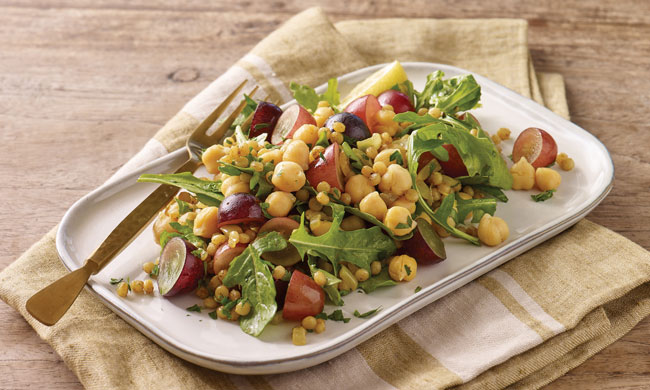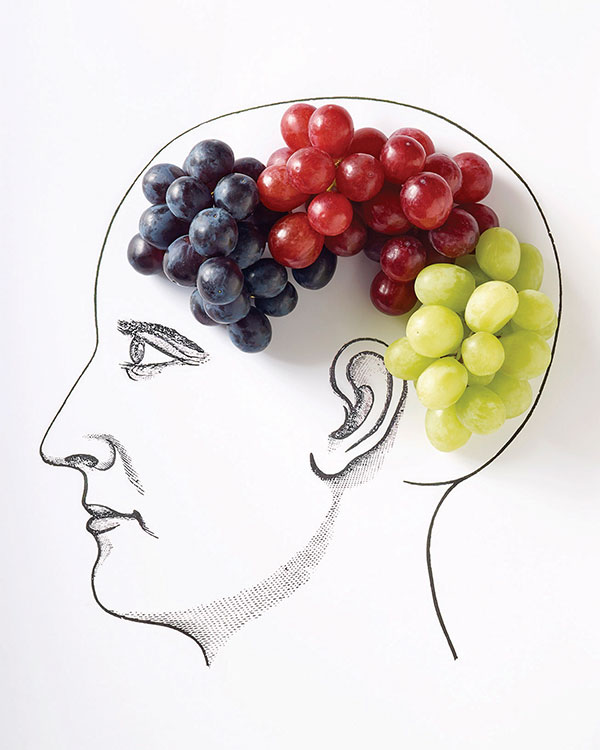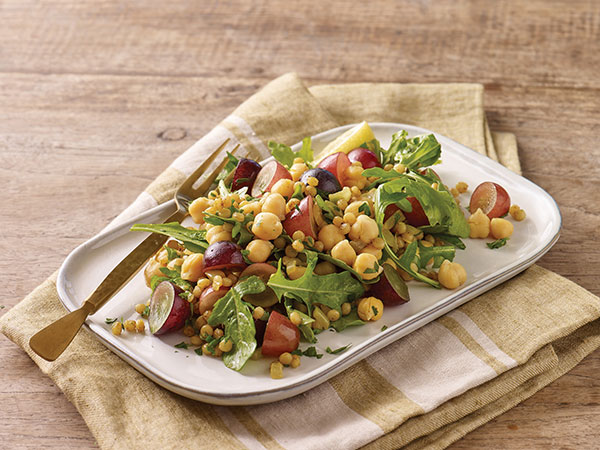Brain Food

(Family Features) When it comes to staying healthy, there is a natural emphasis on physical fitness. However, it’s important to know that nurturing and maintaining brain health is also important for leading a fulfilling life.
The brain is the command center of the human body and as such, influences every aspect of life. Maintaining brain health requires providing it with nourishment, rest and healthy stimulation.
Consuming healthy, whole foods, including vegetables and fruits, such as grapes, can help establish a strong foundation for brain health. For example, grapes may help protect against metabolic decline in the brain associated with natural aging; in a human study of elderly subjects with mild cognitive decline, UCLA researchers found consuming 2 1/4 cups of grapes every day preserved healthy metabolic activity in regions of the brain associated with early-stage Alzheimer’s disease, where metabolic decline takes hold.
Adding grapes to your favorite healthy recipes, or enjoying them as a simple snack, helps support a healthy brain. Consider these additional ways to promote positive brain health from the experts at the Mayo Clinic.
Sleep Well
 Health experts recommend aiming for at least seven hours of sleep per night. As noted by the Mayo Clinic, adequate sleep may help boost overall memory and brain health by giving the brain time to effectively consolidate memories.
Health experts recommend aiming for at least seven hours of sleep per night. As noted by the Mayo Clinic, adequate sleep may help boost overall memory and brain health by giving the brain time to effectively consolidate memories.
Follow a Healthy Diet
Eating nutritiously benefits the body in many ways, including playing a role in brain health. Healthy eating plans like the Mediterranean diet, which emphasizes plant-based foods, whole grains, fish, healthy fats, fruits and vegetables, are thought by experts to be especially beneficial. Recipes like Warm-Spiced Chickpeas and Couscous with Grapes and Arugula deliver an array of ingredients to support brain health in delicious ways. This recipe is also heart smart because what is good for the heart is also good for the brain.
Stay Social
Keep in touch with family and friends. According to health experts, including the Mayo Clinic, staying connected and interacting socially can help defend against depression and stress, which may contribute to memory loss.
Exercise Regularly
Staying physically active provides well-known benefits for the body, and exercising can also benefit the brain by increasing blood flow to it. Once your workout is over, turn to a post-workout snack like Grapes from California for an energy boost and natural hydration.
Keep Your Mind Active
Like muscles throughout your body, the brain should be used continuously to strengthen it. With nearly endless ways to stimulate the mind, there’s something for everyone to keep their brains in shape from crossword or jigsaw puzzles to reading, learning a new language, playing cards or conquering sudoku.
To find more information about the connection between grapes and health, or discover nutritious recipes, visit GrapesfromCalifornia.com.

Warm-Spiced Chickpeas and Couscous with Grapes and Arugula
Prep time: 10 minutes
Cook time: 20 minutes
Servings: 4
- 2 tablespoons extra-virgin olive oil
- 1 small onion, chopped
- 1 1/2 teaspoons ground cumin
- 1/2 teaspoon kosher salt, plus additional, to taste, divided
- 1/8 teaspoon ground allspice
- 1 cup Israeli pearl couscous
- 3/4 teaspoon ground turmeric
- 1 1/2 cups water
- 1 can (15 ounces) no-salt-added chickpeas (garbanzo beans), drained
- 1 cup red Grapes from California, halved
- 2 tablespoons chopped fresh cilantro or parsley
- freshly ground black pepper, to taste
- 4 cups lightly packed baby arugula
- lemon wedges
- In large saucepan over medium heat, heat oil. Add onion, cumin, 1/2 teaspoon salt and allspice; cook, stirring, until onion is softened, about 3 minutes. Add couscous and stir 1 minute to toast lightly. Add turmeric and water; bring to boil. Reduce heat, cover and simmer until couscous is tender, about 15 minutes.
- Stir chickpeas, grapes and cilantro into couscous then season with salt and pepper, to taste. Transfer couscous-grape mixture to large bowl, add arugula and toss well. Serve warm or at room temperature with lemon wedges.
Nutritional information per serving: 370 calories; 12 g protein; 61 g carbohydrates; 9 g fat (17% calories from fat); 1 g saturated fat (2% calories from saturated fat); 0 mg cholesterol; 160 mg sodium; 8 g fiber.
You’ll find fabulous cooking tips, how to videos, and awesome recipes from expert chefs.


How many grapes can a diabetic eat per day? According to the dietician, a diabetic person can eat grapes everyday but the recommended serving size for diabetics is 15 small grapes (1/2 cup) which provides 14 grams of carbohydrates and 58 calories, 1 gram of protein and fiber, along with other vitamins and minerals. Source Healthshots